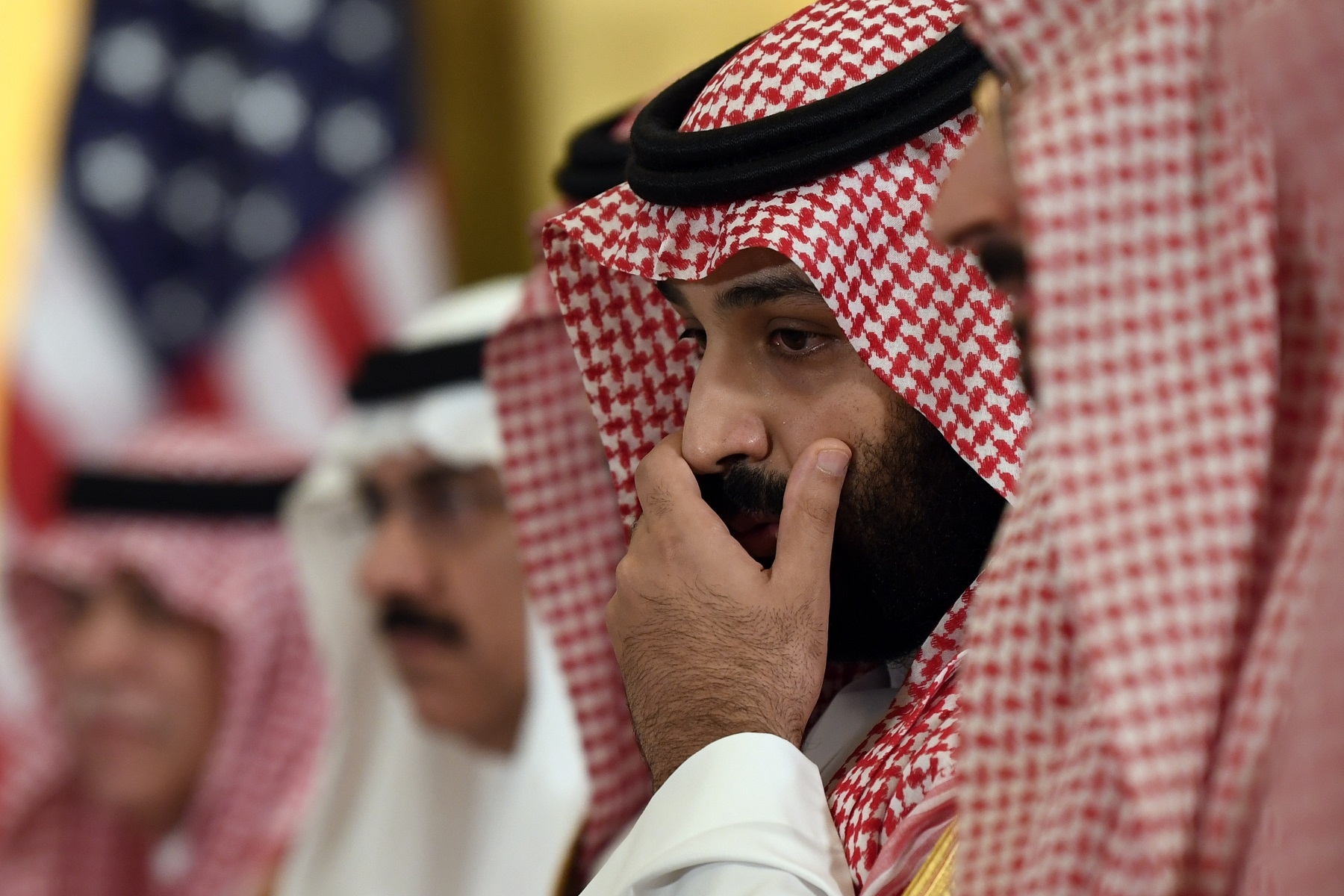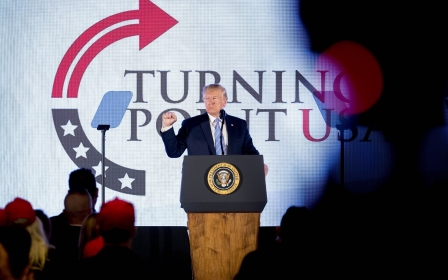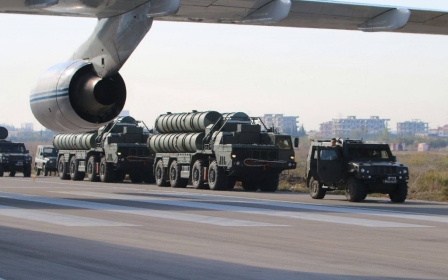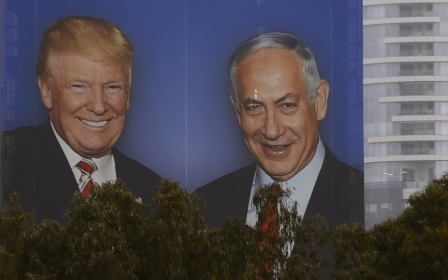Congress members lambast Trump over pro-Saudi veto

President Donald Trump has used three vetoes since his inauguration in January 2017. Two of them were for the benefit of Saudi Arabia.
US lawmakers were outraged after Trump exercised his veto power for the third time late on Wednesday to abort congressional resolutions that aimed to block weapon sales to Saudi Arabia and the United Arab Emirates.
Nancy Pelosi, the speaker of the House of Representatives, lambasted the president, calling his decision "shameful".'
"It is stunning that the president has chosen to not only turn a blind eye to Saudi Arabia's horrific abuses, including the atrocity of Jamal Khashoggi's murder, but to go further and allow the sale of more arms that will be used to perpetrate more human rights abuses around the world," Pelosi said in a statement.
The speaker was joined by many Democrats who expressed anger at the president's decision.
The administration had bypassed Congress to force arms deals worth more than $8bn without the input of legislators.
On 23 May, US Secretary of State Mike Pompeo issued an emergency declaration to push through the sales, citing increased tensions with Iran.
US law gives lawmakers the authority to block arms deals, but it also grants the president the power to sidestep Congress in the case of an emergency.
Congressional leaders have argued that the Trump administration manufactured an emergency to exploit the loophole in the Arms Export Control Act.
Both the Democratic-controlled House and the Republican-controlled Senate passed resolutions to halt the sales, many of which would not be delivered until months from now despite the US administration's claim that there is an emergency.
'Disgrace'
"The president’s veto enables the sale of $8.1 billion in weapons sales to Saudi Arabia's brutal dictators," Senator Bernie Sanders wrote on Twitter.
"It will deepen and prolong the world's worst humanitarian crisis in Yemen. It infringes on Congress' authority over matters of war. What a disgrace."
The White House's decision comes amid a growing outcry in Washington over a dire humanitarian catastrophe in Yemen, where Riyadh is leading a regional military coalition with Western backing against Houthi rebels.
These are weapons being used to kill civilians and children in Yemen. The US continues to be implicated in tens of thousands of needless deaths there
- Senator Chris Murphy
The war has killed tens of thousands of people, brought the already impoverished country to the brink of famine and caused a cholera outbreak, turning Yemen into the world's worst humanitarian crisis, according to the UN.
"These are weapons being used to kill civilians and children in Yemen," Senator Chris Murphy wrote on Thursday.
"The US continues to be implicated in tens of thousands of needless deaths there, and the blood is soaking deeper into our hands, day by day."
Congress tried to suspend US military support for Riyadh's war efforts, but the push, which succeeded in the House and the Senate with bipartisan backing, was similarly vetoed by the White House in May.
Wednesday's decision makes it two Trump vetoes in three months in favour of Saudi Arabia.
This brutal regime should not have our military support
- Justin Amash, congressman
The only other time Trump had vetoed a Congress-approved bill was in March when he blocked legislation to undo his emergency declaration that aimed to secure funds for a border wall with Mexico.
Legislators can overturn the veto with a two-thirds majority in the House and the Senate.
In the case of the Yemen vote, the Senate upheld the president's objection, and it is likely to do the same with the veto against the bid to block arms deals to Riyadh.
In the statement announcing Wednesday's veto, the White House said the push by Congress weakens Washington's credibility among its allies.
"This resolution would weaken America’s global competitiveness and damage the important relationships we share with our allies and partners," the statement read.
A vote for the veto override is likely to take place before the Senate goes into a five-week recess in early August.
Trump has repeatedly defied Congress to protect his Saudi allies, including powerful Crown Prince Mohammed bin Salman.
The White House has yet to answer lawmakers' legally-binding request - through the Global Magnitsky Act - to determine whether bin Salman was involved in the killing of Khashoggi.
Democratic Senator Tim Kaine, who has often questioned Trump's relationship with Riyadh, suggested late on Tuesday that there may be something nefarious in the US president's unquestioning support for Saudi Arabia.
For his part, Justin Amash, who recently abandoned Trump's Republican Party after calling for the president to be impeached, accused Trump of siding with Saudi Arabia against US lawmakers.
"The president again stands with Saudi royals against Congress," Amash wrote on Twitter. "This brutal regime should not have our military support."
Breaking ranks against Trump
While Amash is no longer a Republican, even conservatives who are still at the forefront of defending the president on domestic issues appear to be growing wary of his relationship with bin Salman.
Senators Rand Paul and Lindsey Graham, both vocal Trump allies, had voted for the resolutions to block arms sales to Saudi Arabia.
In fact, Graham has co-sponsored a bill to impose sanctions on those involved in the murder of Khashoggi and human rights violations in Yemen.
The legislation advanced through the Senate Committee on Foreign Relations on Thursday with the backing of three Republicans, including Graham, in a 13-9 vote.
Late last year, all 100 senators approved a resolution stating that the legislative chamber believes that bin Salman ordered the killing of the Washington Post journalist.
But despite signs of dissent on the Republican side, the president still enjoys the support for Senate Majority Leader Mitch McConnell and James Risch, chairman of the Senate Foreign Relations Committee.
The backing of key legislators makes it "unlikely that anything meaningful can become law that would force the president’s hand", said Marcus Montgomery, a fellow at the Arab Center Washington DC.
"Moving forward, members of Congress will probably still try passing standalone bills or attaching provisions to 'must-pass' legislation to limit potential arms sales and otherwise correct the United States' deferential policies towards Saudi Arabia and the UAE," Montgomery told MEE in an email.
Middle East Eye propose une couverture et une analyse indépendantes et incomparables du Moyen-Orient, de l’Afrique du Nord et d’autres régions du monde. Pour en savoir plus sur la reprise de ce contenu et les frais qui s’appliquent, veuillez remplir ce formulaire [en anglais]. Pour en savoir plus sur MEE, cliquez ici [en anglais].





